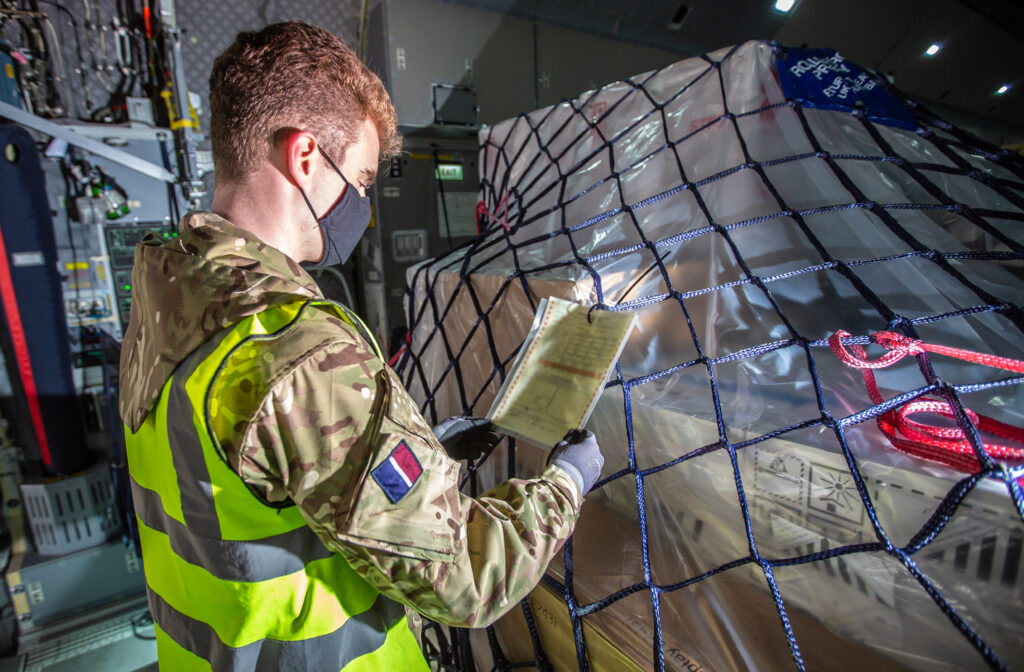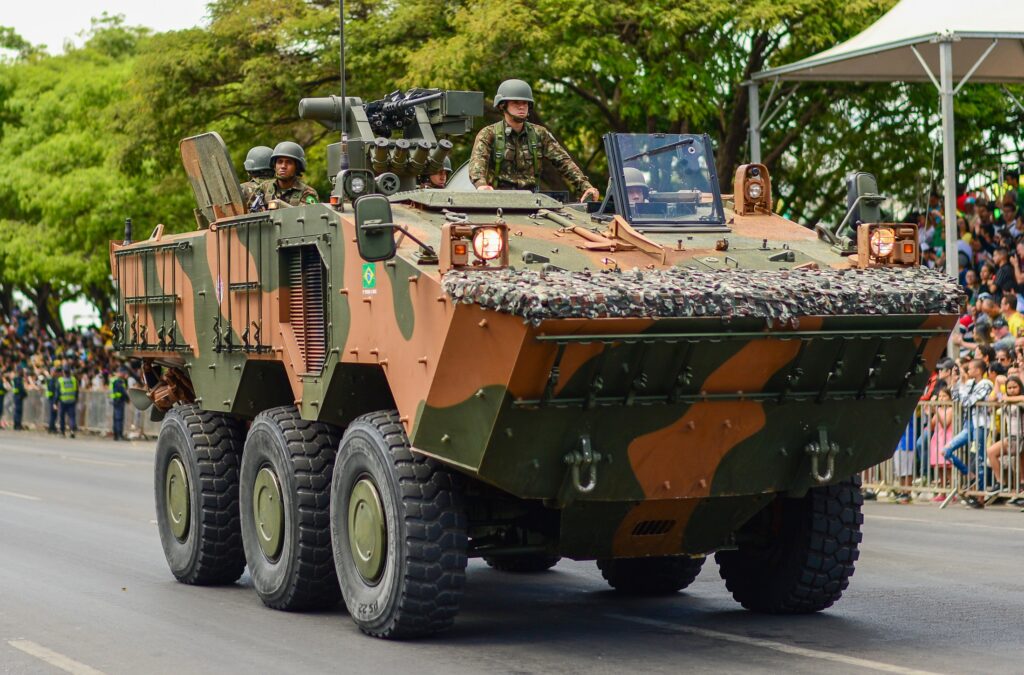The defence market is internationally-focused, and as such, military products need to be shipped across the globe to their required destinations. This means that goods have to be exported, so are subject to certain controls that need to be factored in. In this blog we take a look at the export controls that need to be considered when shipping a military product, and how supplier selection is key to making this as seamless as possible.
Postage and shipping is a fairly routine activity that most of us have carried out in one degree or another over the course of our lives. We all know the basic rules that govern this, such as ensuring that the correct postage is paid for, relative to the size and weight of package, so that it reaches its intended destination.
Commercial trading of goods can be far more complex, however, and it is not as simple as sticking a stamp on the box and popping it in a post.
Customs procedures, duties and taxes all need to be considered, as do any restrictions on exporting goods to certain countries or end users.
Ensuring you are clued up on these factors – and selecting suppliers that are just as well-informed – will guarantee that you are well prepared for all eventualities and that exports are as straightforward as they can be.
So what are the considerations that need to be made, and which ones do you need to factor in when buying military systems? We take a deeper delve into them below.

UK MOD © Crown copyright 2021
Strategic export controls
A strategic export control regime is a country’s regulatory framework for the export of goods, especially sensitive technologies.
There are limitations or simply outright bans on selling goods to certain countries, and knowing this information is a good starting point.
Some will be obvious, i.e. the ones where international relations between the two countries are fraught or even non-existent and trade sanctions are in place. In these instances, export is clearly a no-go, and no amount of license applications will overcome this.
But there are additional considerations to be made. In the UK, trade controls – trafficking and brokering of military goods from one overseas country to another – and transit controls – certain goods transiting the UK are regarded as being exported when they leave the country and are subject to control – are to be considered for countries that are not necessarily embargoed.
For the defence market specifically, arms embargoes exist, and for the UK these are mandated by the government under its Sanctions Act, by the United Nations (UN), or by the Organisation for Security and Co-operation in Europe (OSCE).
For the UK, embargoes, sanctions and trade and transit controls are listed in the Export Control Order 2008. Certain nations are listed as embargoed and no exceptions will be made, while others are subject to certain controls for military and sometimes non-military goods.
For the US market in particular, the International Traffic in Arms Regulations (ITAR) regime is a consideration, but more on that later in the blog.
International shipping standards
Goods are categorised in different ways by governments and international trade organisations, and this can influence the way in which they are exported.
International Commercial Terms, or Incoterms, are published by the International Chamber of Commerce and define the responsibilities of importers and exporters of goods. Three-letter trade terms are applied to items, which will outline the responsibilities related to shipping for all parties involved throughout the shipping process.
Further harmonisation of international trade and customs is outlined by the World Customs Organisation’s (WCO) Harmonized Commodity Description and Coding System.
This Harmonized System – or HS – is a multipurpose international product nomenclature that comprises more than 5,000 commodity groups that are each identified by a six-digit code for classification.
The system is used by more than 200 countries and economies as a basis for their customs tariffs, and over 98% of the merchandise in international trade is classified in terms of the HS, according to the WCO.
Furthermore, military goods, software and technology require export licenses when shipping, as do dual-use items.
The UK government classifies dual-use items (including software and technology) as those that can be used for both civil and military purposes. This also includes goods that have non-explosive uses or assist with the manufacture of nuclear weapons or other nuclear explosive devices.
The UK consolidates all items that fall under these requirements on its UK Strategic Export Control List.
There are then non-military items that do not require a license.

US export regulations – ITAR
ITAR is a term bandied around regularly within the defence industry, but what are ITAR regulations? And who do they apply to?
Administered by the Directorate of Defense Trade Controls (DDTC), ITAR is a US regulatory regime that serves to protect the national security and foreign policy interests of the US by governing and controlling the trade of defence items and services.
Ultimately, if an item is manufactured for defence purposes and comes from the US, it is restricted by ITAR, and permission has to be granted by the US government for those parts, components or systems to be exported to a non-US entity.
Items defined as defence articles that are subject to ITAR compliance are listed on the United States Munitions List that can be found here: https://www.ecfr.gov/current/title-22/chapter-I/subchapter-M/part-121
Products containing ITAR-restricted components can be exported, however, but this has to be done under a Technical Assistance Agreement (TAA) that allows for the transfer of technical data related to defence items. A TAA is also required to access information on a technology that is ITAR controlled.
ITAR largely covers weapons and systems, while the component-level items and sub-systems tend to fall under the government’s Export Administration Regulations (EAR), which are administered by the US Department of Commerce’s Bureau of Industry and Security (BIS).
A Commerce Control List (CCL) then categorises items restricted by the BIS but that do not fall under ITAR – such as dual-use items – and is similar to the UK’s Strategic Export Control List.
Each item on the CCL is allocated an Export Control Classification Number (ECCN), which is used to identify the item and the restrictions that govern it. In short, if an item has a CCL ECCN, then it requires an export licence from the US government.
EAR items that do not fall under the CCL are generally classified as EAR99 and do not require an export license. While no license is required, the government warns that the destination and the end user must be considered by the exporter, and upholding due diligence is advised to ensure that goods do not end up in the hands of a prohibited user.
How does this apply to GRiD?
Considering that GRiD Defence Systems develops systems for military customers – it is in our name, after all – our technology in fact falls under EAR99 and is not classified as a military or dual-use system.
We design very rugged computers, but they are based on non-military-specific components and as a result are not classified as a military product, and can therefore ship under an NLR – or No License Required – designation.
This means that our customers benefit from a more straightforward and speedy export process.
GRiD always carries out due diligence, however, and ensures that it stays informed on any change in export requirements, and that it is only shipping to countries and end users approved by the UK government.
This is especially important when shipping electronics, which are often subject to limitations due to safety implications.
Laptops and tablets have to be removed from bags before going through airport security, and similarly there are restrictions on the types of batteries you can take onboard a flight, and the safety reasons behind this also apply to large-scale commercial shipments.
GRiD uses best-in-class lithium-ion batteries produced in the US, which are fully compliant with UK and EU regulatory directives when shipping. When we then ship the battery pack to a customer it is installed in a device, which has less safety implications than when shipping the batteries alone.
Conclusion
GRiD is proud to have a wide and varied international footprint, and takes it responsibilities in ensuring that it ships in line with regulations very seriously. Exports and shipping can be complex, so if you have any queries about controls or restrictions, please get in touch and we would be happy to discuss it with you.
Please get in touch on +44 (0)1628 810 230 or drop an email to sales@griduk.com.

